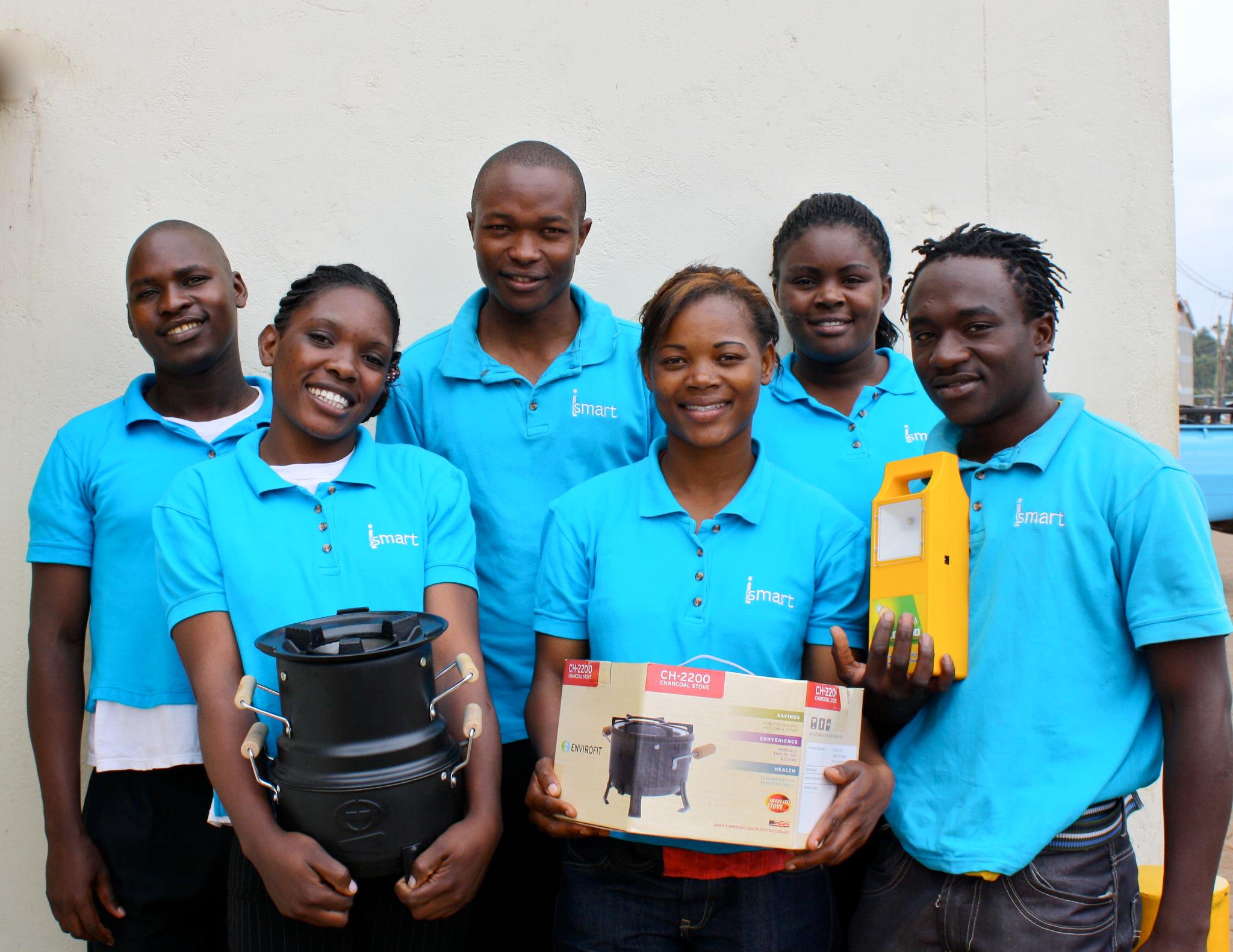The LivelyHoods Hustle: Why sales and marketing skills are a natural fit for Nairobi slum youth
‘Hustling’ for jobs – a term used to describe the act of roaming around to find any means to “earn some coins”- was a continuous activity for Simon Masambu before he started working as an iSmart sales agent. He would fetch water for people in 20-liter jerry cans, receiving 10 shillings per delivery, and earning up to 200 shillings, or the equivalent of less than US$2.50 per day. When no one was in need of water, he helped bring tools and other equipment to construction sites for similar pay. His attempts to secure a formal job were refused based on his lack of qualifications and experience.
Simon’s story is all too common among the 1 million unemployed youth living in Kenyan slums. The creativity and intelligence of more than 75 percent of the country’s youth goes underutilized in the current job market. Often, they are not only a wasted resource, but contribute to insecurity and unrest when left with few alternatives to survive. We founded LivelyHoods to address this problem by offering sales and marketing training to young people in Nairobi slums. After completing a one-week in-the-classroom training, youth are provided access to a $75 credit facility in the form of consumer products provided by iSmart to continue their sales training in the field. iSmart, a door-to-door retail company, is a brand we created at LivelyHoods to provide training graduates with valuable work experience. The iSmart sales force distributes life-changing products, such as solar lamps and clean-burning cook-stoves. This field experience is the key to setting iSmart trainees apart by making them more competitive than their peers who lack any formal job experience, the number one obstacle to getting a job.
We’re working on scaling our impact and operations, but the preliminary promise of this model is exciting. A total of 80 iSmart sales jobs have been created so far, with $100,000 worth of products sold, benefiting an estimated 10,000 people. With sales revenues already covering operating costs, we believe the model is sustainable. After overcoming numerous challenges since opening our doors in June 2011, our team owes this early success to three key findings:
(1) Low-Risk Opportunities for Youth: The Daily Consignment Model
LivelyHoods was born out of a pilot program to give seven young people entrepreneurship training and loans to start their own businesses. Shortly after the training began, the participants said that they did not want to take out a loan and risk ending up in debt if their business did not work out. Understandably, many reported that they did not want to run a business on their own with little to no experience; they wanted to continue to be a part of a team. After learning that youth did not want to assume the risk of micro-loans, our staff engaged the pilot group to find out what they did want. We talked to hundreds of youth hustling in slums. And all of that hustling, we learned, translated into sales experience for young people hawking everything from mangos to cocaine. These findings inspired the staff and youth to build a sales team and develop a daily consignment model. The model ensures that youth do not take on loans and are never left worse off than they were when they joined. It also ensures that any product in the catalogue can be delivered anywhere in the slums within 24 hours.

(2) Socially Beneficial Products Can Be Broadly Defined
Our product agnostic sales network promotes consumer choice in Kenyan slums. Believing that jobs are created when customers are created, LivelyHoods focuses on bringing high-quality products to market. We have learned that while solar lamps and clean-burning cookstoves are important, so too are every day products, i.e. irons, pots, pans and electric kettles. After a six-month supply gap of our best-selling charcoal stoves, sales were down and retention was low. We took our sales agents to the biggest retail chain in East Africa and asked them to pick out products that they thought they could sell. Instead of excitement we heard, “No, we can’t just walk around in this store, we’ll get arrested!” and “If we put products in a basket we’ll have to buy them!” These sales agents, who also represent our target customer base of slum residents, did not feel welcome in this upmarket store even though it is located just outside of a slum and often carries products at cheaper prices than their local kiosks. This highlighted the psychological barrier that exists between our target market and seemingly available products in prominent retail outlets. By bringing household goods of all kinds directly to our customer’s doors, we can build a robust distribution channel for a broad range of products.

(3) Tapping the Talent of Uneducated Youth
We designed our distribution network around the idea that youth sell just about anything to survive. We aimed to leverage that skill, training youth to become excellent sales representatives. Key to scaling this success has been a strong management and leadership development program. The skills acquired by participants serve to maximize their marketability while also equipping them for a range of potential careers. Retail is the second-fastest growing sector in Kenya, which means that there is a good opportunity for youth to find a job in sales, marketing or promotions. Our hope is to train young people to work at iSmart, but also equip them with skills for the rest of their lives.
We’re still learning. More important than any of these findings is the belief that challenges must be viewed as opportunities. We’re committed to solving the youth unemployment problem in Kenyan slums, working hand-in-hand with the very people we wish to serve.
Tania Laden is the executive director of LivelyHoods.
- Categories
- Education, Social Enterprise
